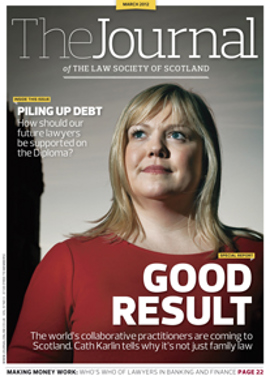Plain sailing?

The regulation and advertising of tobacco products are no strangers to controversy. Attempts to reduce smoking by requiring plain packaging for tobacco products have opened up a heated global intellectual property debate about the legitimacy of regulations prohibiting the use of trade marks and branding on cigarette packs.
Thus far, legislation has only been enacted in Australia: the Tobacco Plain Packaging Act 2011. However, the UK Department of Health has indicated a commitment to consult on the introduction of plain packaging, and the idea has already gained support as part of a European Commission report of July 2011, following a public consultation on the possible revision of the Tobacco Products Directive (2001/37/EC). Thus it is an issue about which all brand owners should be aware.
This article will focus on the potential implications such packaging could have for the trade mark rights of tobacco owners, and question whether such measures are legal and/or proportionate.
What is plain packaging?
To understand why this issue has sparked what is known as the tobacco trade mark wars, one must first identify what “plain packaging” is. An ability to identify and differentiate between cigarette brands on sale will always be required with some product details visible to retailers and consumers. A useful touch point can be found in the Australian legislation, due to come into force in December 2012. Tobacco companies will be permitted to continue to use their brand names, but they will require to be printed in a small, uniform font on dull, olive green packets. In addition, large areas of the packs will be covered by graphic photographs of the health risks posed by smoking.
The usual packs we are all accustomed to seeing on shelves, typically using stylised prominent brand names and distinctive packs/getup (which are likely to be the subject of trade mark registrations), will no longer be allowed. Clearly this goes beyond limiting the display of cigarettes, which was the subject of consultation by the Scottish Government.
Where does IP come in?
Many famous and valuable trade marks are owned by tobacco companies. The plain packaging issue has led to arguments that regulations in this area misappropriate valuable intellectual property rights without compensating brand owners. They are thus claimed to be in breach of various international legal obligations relating to the protection of intellectual property – which obligations equally apply in the UK.
This article focuses on the key arguments in relation to trade marks with reference to the UK’s obligations under the Agreement on Trade Related Aspects of Intellectual Property Rights (“TRIPS”).
The purpose of a trade mark
A trade mark is a badge of origin which provides its owner with the exclusive right to provide goods or services under that trade mark, thus allowing such goods or services to be distinct in the market place. The courts in the United Kingdom and throughout Europe have evolved the scope and function of a trade mark to include communication, advertising and investment functions as well as guaranteeing the quality of goods and services. It is important to bear in mind the broad function of trade marks, and the commercial value they have to brand owners, when assessing whether plain packaging falls foul of TRIPS or not.
Does registration of a trade mark guarantee the right to use it?
In any commercial context this question may seem rhetorical. A key legality claim is that under TRIPS a trade mark registration does not guarantee any right of use, and that in any event various provisions expressly allow use to be limited, particularly in support of public health. The following “article” references are all to those in TRIPS.
Can tobacco be treated differently?
Article 15.4 provides that the nature of the goods or services to which a trade mark is to be applied shall never be an obstacle to the registration of a trade mark. Thus there can be no grounds upon which to refuse the registration of a trade mark for tobacco linked to the product itself. On one view, any such legislation is tied purely to the nature of tobacco products and hence is in breach of TRIPS.
It is also clear from article 17 that any measures limiting the rights conferred by a trade mark must take account of the interests of both the owner of the trade mark and third parties.
Registration and use
Those supporting plain packaging argue that article 15.4 relates only to registration of trade marks, that legislation does not prevent registration, and plain packaging is limited to the use of the trade mark. While the author accepts that there is a basis to interpret TRIPS as dealing with registration and validity rather than positive use, it is suggested that this is an entirely literal and unrealistic definition, ignoring the broad function of a trade mark and the commercial reality that the purpose of registration is to use that trade mark.
In the UK, use is part and parcel of registration. Under the Trade Marks Act 1994 a trade mark can be invalidated if it has not been put to genuine use within five years of registration. At the time of making the application, also, the applicant has to make a good faith declaration that they intend to use the mark. If marks are not used they lose their goodwill and value in the marketplace, which undermines the purpose of registration.
Article 19.1 does provide that government requirements for goods or services protected by the trade mark are recognised as valid reasons for non-use and could prevent invalidation. However, it would seem that the exemption applies to the goods themselves being banned from sale, and not the mark under which they are sold.
Limitations within TRIPS
Supporters of plain packaging refer to TRIPS allowing limitations on use post-registration. Article 8 allows measures to be adopted which are necessary to protect public health, provided that such measures are consistent with TRIPS. It is recognised that smoking is harmful to health. However, it is unclear whether plain packaging will result in reduced tobacco consumption, and the introduction of what could turn out to be a positive or negative experiment is arguably at the expense of brand owners. A related concern is that there is already a huge counterfeit tobacco market in the UK, and anything that makes the jobs of counterfeiters easier could in fact result in an own goal if more harmful fake cigarettes are on the market.
Article 20 provides that the use of a trade mark shall not be unjustifiably encumbered by special requirements, two of which are use in a special form and use in a manner detrimental to its capability to distinguish the goods of one party from another. It is not difficult to see how the requirement of universal packaging conflicts with both of these. Importantly, it essentially turns tobacco into a general commodity rather than differentiated competitive brands.
Positive or negative rights?
Intellectual property rights can be categorised as wholly negative rights, allowing their owner to stop others from using the same brand or trade mark without permission, rather than being positive rights exercisable by the owner. Actions for trade mark infringement do indeed generally seek to prevent others operating in a way that confuses the origin of goods.
The commercial interests of brand owners should not be the only consideration when assessing the validity of the plain packaging argument, and arguments have been advanced that TRIPS does support the legitimacy of such legislation. However, the framing of trade marks in such a black and white fashion fails to consider their purpose and the market in which they operate. Accordingly the views of the author are that there are solid arguments available to tobacco companies to challenge the introduction of plain packaging measures under TRIPS as being without legitimacy, or at the very least disproportionate to the objectives sought to be achieved. It is almost certain that their proposal and/or introduction into the UK will be strongly challenged.
Other issues
It is not possible within the scope of this article to investigate the myriad legal arguments which could be raised against the introduction of such legislation. However, it does not take much thought to foresee obstacles such as the impact it could have on the free movement of goods within the European Union if only the UK were to adopt such measures. Also, could there be a claim for breach of a company’s human rights if it had its possessions (including trade marks) removed or significantly impacted upon without appropriate compensation?
There is a further risk that such legislation represents the thin end of the wedge, as if it is seen to have a positive impact on tobacco consumption, will smoking-related products, fast food, alcohol and other perceived harmful products be next in line?
It will be interesting to monitor the legality challenge to the Australian legislation, as well as the impact it has on tobacco consumption. These will likely be monitored before further legislation is introduced. Brand owners should carefully monitor the UK and ongoing European consultations on the introduction of plain packaging. Plain packaging is unlikely to have plain sailing if it were to be introduced in the UK.
“Visionary innovators” theme for WIPD
The theme for World Intellectual Property Day 2012 is “Visionary innovators”, the organisation has announced.
Marked on 26 April each year, the anniversary of the WIPO Convention coming into force, World Intellectual Property Day celebrates innovation and creativity and how intellectual property fosters and encourages them.
The 2012 theme focuses on individuals whose ingenuity and artistry have broken moulds, opened new horizons and made a lasting impact.
The Law Society of Scotland and the Faculty of Advocates are planning their fifth annual World Intellectual Property Day event in Edinburgh on Friday 27 April 2012, from 12 noon to 2pm at the Mackenzie Building, Old Assembly Close, High Street, Edinburgh EH1 1QX.
In this issue
- Capacity and undue influence
- Tolent clauses in construction contracts
- Mending the safety net
- Keeping it in the family
- Speak with impact
- The complication of tax simplification
- Reading for pleasure
- Opinion column: SIHRG
- Book reviews
- Council profile
- President's column
- The price is right?
- Learning on the slate
- A better way to talk
- Plain sailing?
- Kilbrandon in the 21st century
- Who's who in banking and finance
- Corporate speak
- Here we go again...
- Deadlines in negotiations
- Scottish Solicitors' Discipline Tribunal
- Shuffling walnuts?
- A bold step forward
- Action to safeguard vulnerable clients
- Buildmark acceptance goes online
- Law reform roundup
- Escape from disaster?
- Ask Ash
- Update branches out
- Business checklist
- Work, the deciding factor






